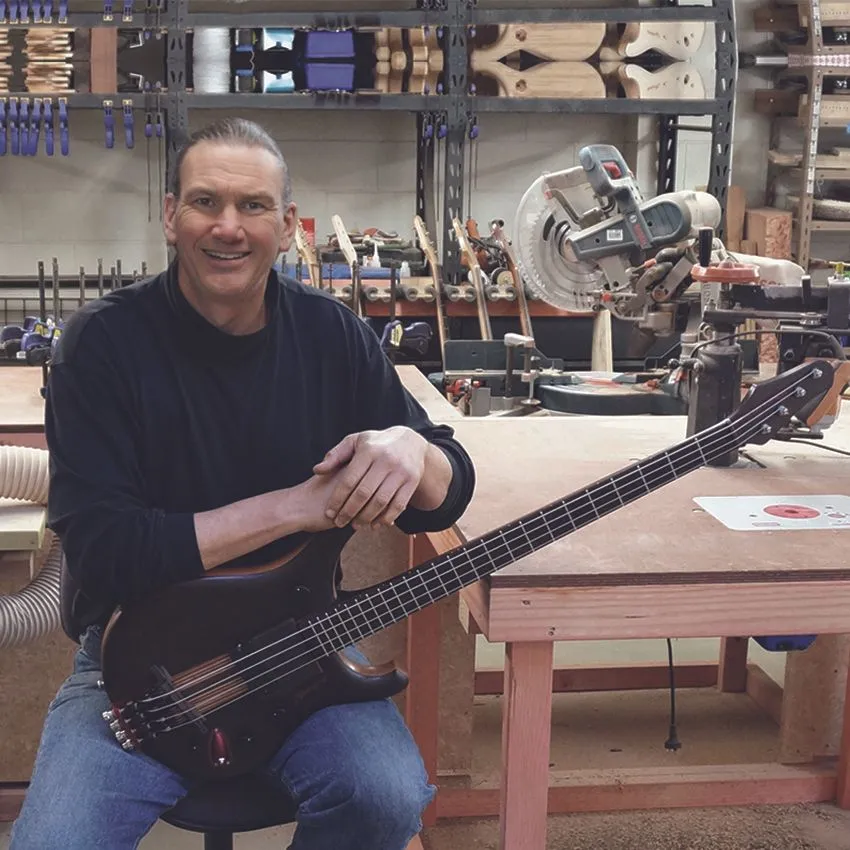Tomm Stanley: Crafting a Business
Written by

As well as being a musician and luthier, he’s worked at Disney World, on Antartica, as a business mentor and use to sky dive for fun. Talk about an interesting life! American Tomm Stanley now lives in Christchurch, New Zealand and owns Stonefield Music, building top quality, beautifully crafted bass guitars. With lots of experience in marketing and business Tomm is launching his company with an international mindset and strategy. A fascinating and lovely guy with lots of great stories. This is a good one!
What advice would you give someone wanting to pursue a similar career?
As in most aspects of life, do it if you love it and feel compelled to. With a bit of persistence and marketing savvy you can make a living producing what people are used to buying, but if you decide to introduce something new and different make sure to come into the situation with your eyes wide open. In spite of the exploratory and creative nature of music, that open-mindedness doesn’t seem to readily apply to the gear they use to create that music.
It’s hard work to bring something as unique as a Stonefield bass into the market but once people do settle on the fact that it is actually a good choice to make, and they make it, you can’t beat that feeling. There’s huge satisfaction in someone wanting an instrument that you've created and there’s very little on the coolness scale that can compare to seeing a world class performer on an instrument that you can remember as a pile of wood.
What is the biggest challenge that you see for people seeking a career in the creative sector and how do you navigate that challenge?
Finding the opportunity that allows you to shine. Finding the opportunity is often challenge enough, but I think a bigger challenge is that opportunities often present in a different place or form than what you anticipated.
When opportunity is in front of you: first, do you see it? Second do you go for it? Third, can you handle the sacrifice that going for it might involve?
I've learned that nothing comes without cost and navigating the decision process can be the biggest challenge. You take it as it comes, make the best decision with whatever information you have available and if for some reason your decision doesn't pan out the way you hoped or expected, at least you can learn from the experience.
What is your number one tip for surviving and thriving in the creative industries?
Be flexible and be prepared to leap when you need to leap. And if I can have a second-best tip, never burn bridges that you may one day again need to cross.
Don't Give Up Your Day Job podcast series